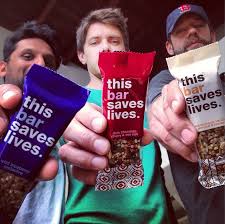Home
About Us
Page 2
These individuals can include those from underrepresented racial and ethnic groups, individuals with disabilities, as well as individuals from socially, culturally, economically, or educationally disadvantaged backgrounds who have just recently and demonstrably inhibited their ample capacity to pursue a career in health-related research.
|
|
Initially, the program was established because of the need to promote a compelling diversity in the NIH-funded research workforce, as well as the agency's recognition of the fact that there is quite a huge population of worthy investigators who might need to immerse themselves rigorous research training in order to flawlessly develop a substantial research project grant application.
The NIH and NCI is set to administer an annual budget of $275,000 to eligible recipients of this grant.
The institutions and organizations who will be considered eligible to submit an application under this program are the following:
a) State Governments, Country Governments, City or Township Governments, Special District Governments
b) Independent School Districts, Public and State Controlled Institutions of Higher Education
c) Native American Tribal Governments
d) Public and private nonprofit organizations
e) Private Institutions of Higher Education
f) Faith-based or Community-based Organizations and Regional Organizations.
Exploratory Grant Award to Promote Workforce Diversity in Basic Cancer Research
Back to Page 1
About The Author Iola Bonggay is an editor of TopGovernmentGrants.com one the the most comprehensive Websites offering information on government grants and federal government programs. She also maintains Websites providing resources on environmental grants and grants for youth programs. |
Additional Resources
category - Health Grants
American Schools and Hospitals Abroad Program
Economic Studies Ancillary to Completed or Ongoing Health Care Delivery and Financing Pilots, Demonstrations, and Other Experiments
Money Follows the Person Rebalancing Grant Demonstration Program
The Collaborative Islet Transplantation Registry Program
Follow @topgovtgrant
Social Entrepreneurship
Spotlight
A Bar That Saves Children’s Lives

Ryan Devlin, Todd Grinnell and Ravi Patel have traveled to Africa on a humanitarian trip a few years back, encountering children suffering from severe malnutrition get healthy through Plumpy’Nut®.
